How It Works
We begin by entering a recipe and its ingredients into our system, classifying them by the daily dozen categories they satisfy. We link each ingredient to a reference food in the Food Data Central database. This enables us to do the math for how much a particular ingredient satisfies a category in the daily dozen.
From there we are able to calculate how much a single serving of a recipe satisfies each of the daily dozen categories.
And then we combine recipes to construct a meal plan in such a way that they complement each other and satisfy the daily dozen.
The result is an ideally balanced meal plan.
More factors will be introduced into the algorithm over time making it even healthier. Possibilities I have in mind include accounting for food synergistic effects (a real thing!), ensuring meal plans have sufficient variety (variety is known to be important!), and more. See what's coming next on the public trello.
Below are the things the algorithm currently accounts for when generating the meal plans and why they are important.
Legumes (Beans, split peas, lentils, tofu or tempeh)
A Nutrition Powerhouse
Our meal plans give you 3 servings per day
Adequate legume consumption appears to increase lifespan, slow your resting heart rate (comparably to exercise's effect), control blood sugar levels, control diabetes, prevent heart disease, lower blood pressure, and reduce cholesterol enough to get people off cholesterol lowering drugs.
96% of Americans don't eat the minimum recommended amount.
Learn More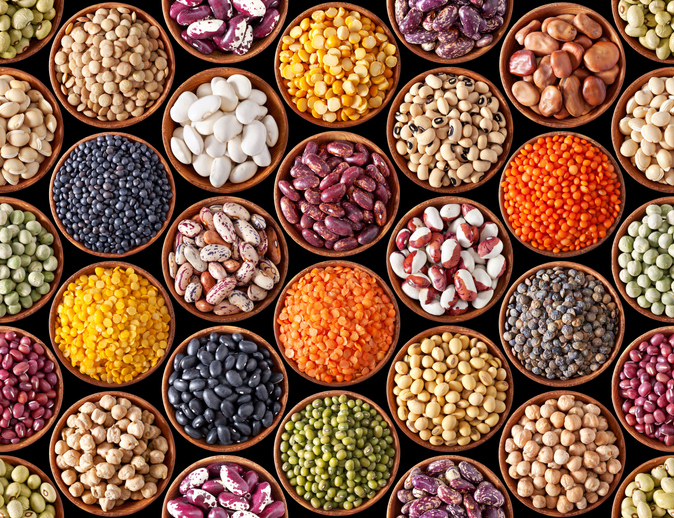
Berries
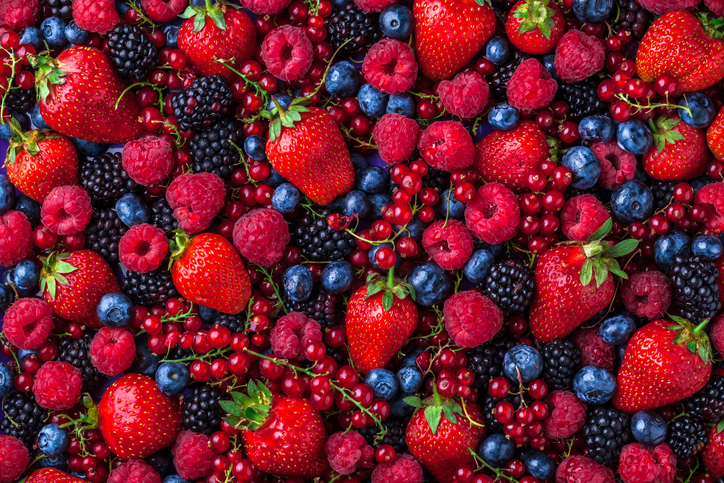
The Antioxidant King
Our meal plans give you 1 serving per day
Berries are extremely high in antioxidants, a class of compounds that can neutralize DNA damaging (and thus cancer inducing) free radicals. In order to stay out of oxidative debt, we need to consume more antioxidants than we use.
A single serving of blueberries has been shown to increase the antioxidant capacity of the bloodstream enough to improve protection against DNA damage. Berries may reduce cholesterol, slow brain aging, improve cognitive performance, improve mood, boost natural killer cell counts (which attack cancer), and reduce muscle soreness.
Learn MoreOther Fruits
Ensuring you get a variety of fruit phytonutrients
Our meal plans give you 3 servings per day
Lemons, persimmons, and apples can boost DNA repair (and thus help prevent cancer). Peaches, bananas, grape fruits, apples, and lemons appear to suppresss cancer cell growth. Despite their relatively high sugar content, it appears you can't each too much fruit. A variety of fruits may be beneficial as we have specific receptors for specific fruits and vegetables.
Learn More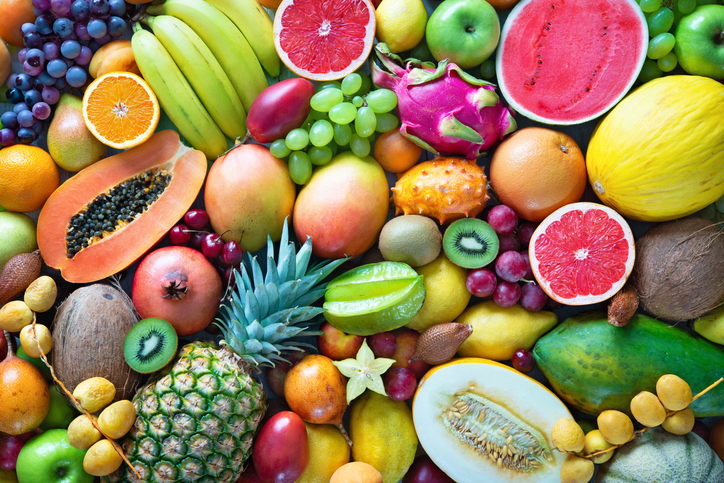
Cruciferious Vegetables
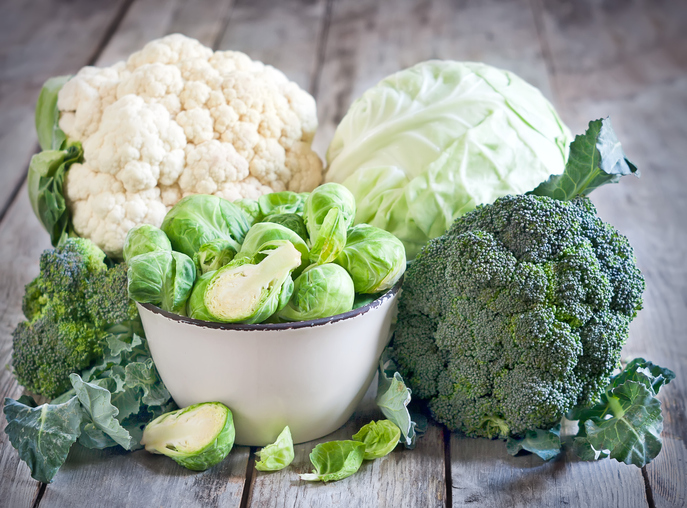
The Sulforaphane King
Our meal plans give you 1 serving per day
Sulforaphane is an antioxidant compound that is almost exclusive to cruciferious vegetables. It is the most potent known inducer of our detoxification enzymes, helping to protect against air and industrial pollutants. This may be particulary important if you happen to live near a busy road.
Cruciferious vegetables also appear to protect against DNA damage, increase cancer survival rates, increase antibody production, and increase intestinal immune function.
Learn MoreGreens
The Healthiest Vegetable
Our meal plans give you 2 servings per day
Greens appear to prevent alzheimers, prevent cancer by intercepting carcinogens, cut the risk of having a heart attack, prevent wrinkles, slow our metabolism (potentially increasing lifespan), improve athetlic performance and recovery, and even make you more attractive.
They are the top source of eye protective nutrients lutein and zeaxanthin that improve vision & protect against degenerative eye diseases.
96% of Americans don't eat the minimum recommended amount.
Learn More
Other Vegetables
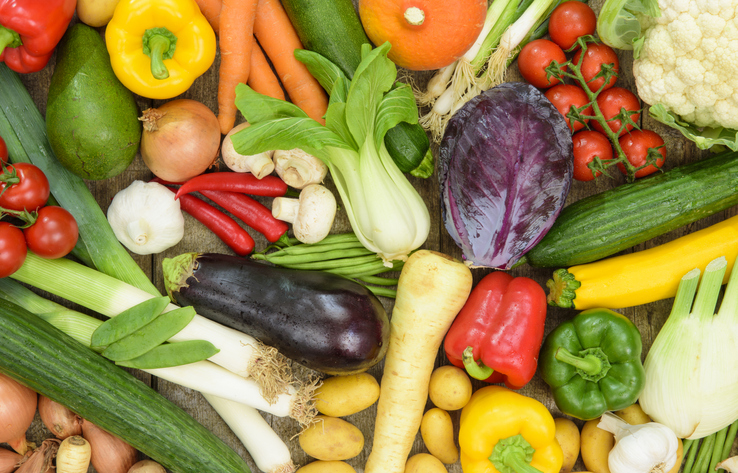
Ensuring you get a variety of vegetable phytonutrients
Our meal plans give you 2 servings per day
A variety of vegetables may be beneficial as we have specific receptors for specific vegetables.
Different types have different beneficial phytonutrients and effects on the body. Garlic appears to be the #1 anti-cancer vegetable (although many others help as well), beets and other nitrate rich vegetables seems to boost brain function, and tomatoes are high in lycopene which prevents cancer.
Learn MoreFlaxseeds
The Lignan King
Our meal plans give you 1 serving a day
Flax seeds are an exceptional source of cancer preventing and fighting lignans, containing around 100 times more than others foods. They also appear to reduce blood presure comparably to leading medications (without the side effects).
Learn More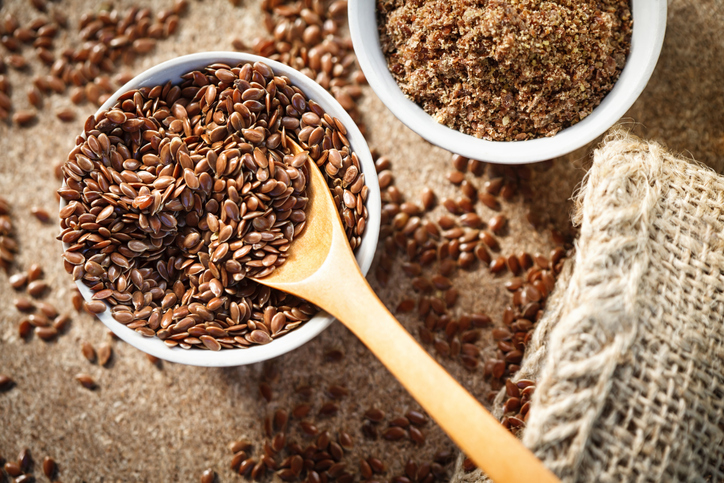
Nuts
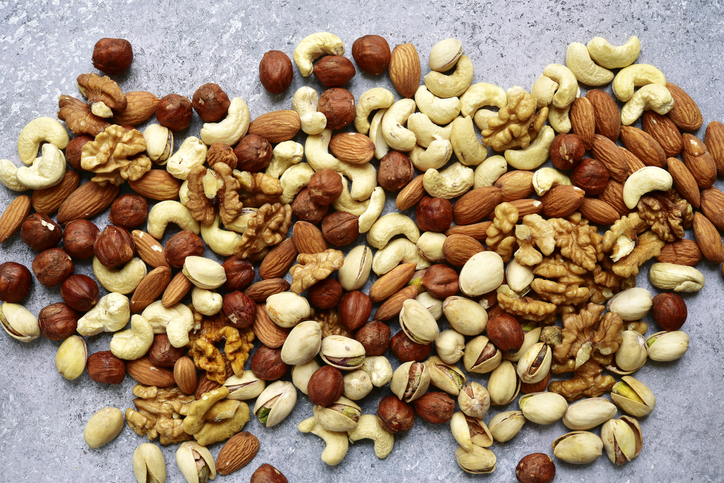
The Life Extender
Our meal plans give you 1 serving per day
Eating nuts may make you live 2 years longer, improve artery function, and cut the risk of death from inflammatory disease by half.
Learn MoreTurmeric
An Extremely Potent Spice
Our meal plans give you 1 serving per day
Turmeric has been demonstrated to have a wide array of benefits including anti-cancer effects (carcingogen-blocking, anti-proliferative, antioxidant), anti-inflammatory effects, possible alzheimer prevention & treatment, as well as being a rheumatoid and osteoarthritis treatment.
Learn More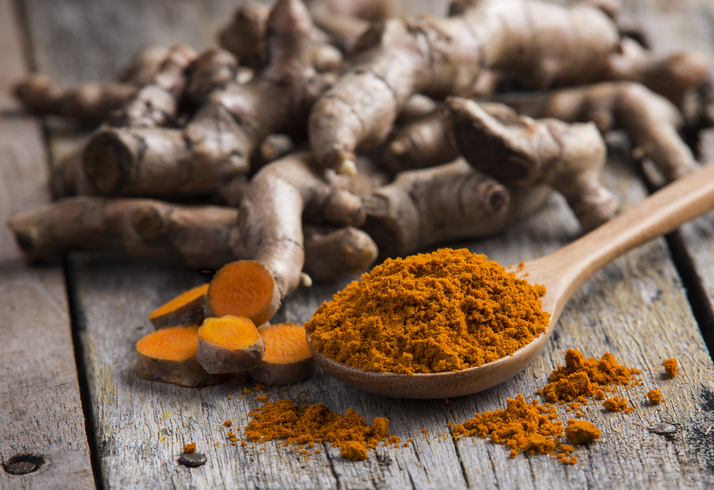
Whole Grains
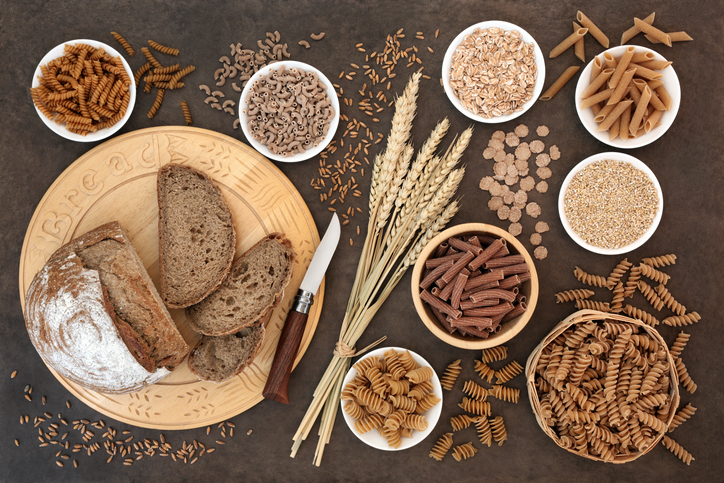
Goods for the Gut
Our meal plans give you 3 servings per day
Most Americans get less than half the recommended minimum intake of fiber, and whole grains are a good source. Western countries could be considered almost universally constipated, largely due to lack of fiber intake.
Besides packing a fiber punch, whole grains also increase gut bacteria diversity and reduce systemic inflammation, and reduce blood pressure comparably to drugs.
99% of Americans don't eat the minimum recommended amount.
Learn More